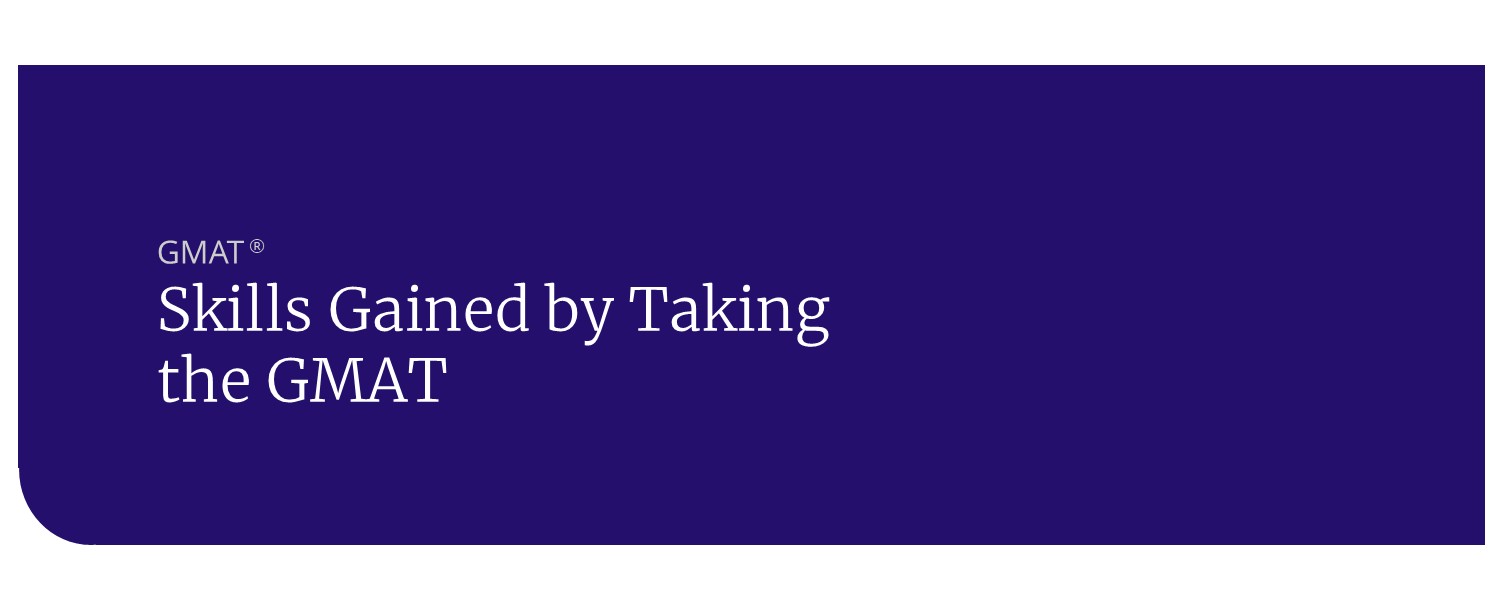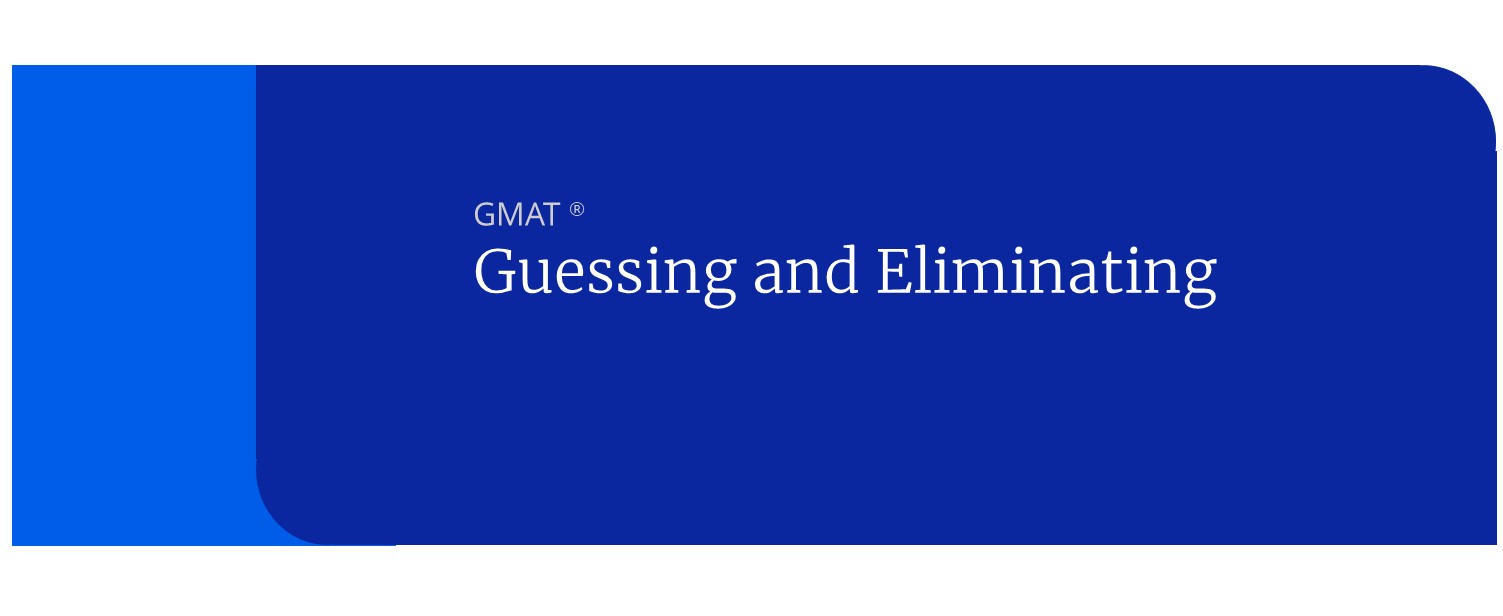Skills Gained by Taking the GMAT
Preparing for the GMAT builds practical abilities that apply to far more than a single exam. As you work through complex questions and timed sections, you learn to analyze information, manage your pace, and make decisions with limited details. These are the same skills professionals use to solve problems, lead teams, and evaluate data in real-world situations.
The skills gained from the GMAT become habits that shape how you think and perform. They strengthen focus, discipline, and strategic awareness–qualities that make a difference in business school and throughout your career. In the following sections, you’ll see how GMAT preparation builds these abilities step by step, from sharper analytical thinking to stronger time management and problem-solving skills that apply well beyond test day.
Analytical Thinking That Drives Better Decisions
Strong analytical thinking begins with learning how to interpret data rather than reacting to it. The GMAT’s Quantitative Reasoning and Data Insights sections teach you to focus on what the numbers actually mean, not just how to calculate them. You learn to sort through details, find patterns, and connect evidence to outcomes–the same process used in data-driven decision-making and strategic business planning.
Reviewing a GMAT chart or word problem is similar to analyzing a quarterly report or evaluating new market data. Each task requires patience, logic, and the ability to translate facts into action.
The skills gained from the GMAT in this area include:
- Extracting meaningful insights from detailed data
- Recognizing patterns and logical relationships
- Weighing evidence before reaching a conclusion
- Applying analytical thinking to solve real-world challenges
Communication and Reasoning Skills That Stand Out
Clear communication often starts with clear thinking. The GMAT’s Verbal Reasoning section helps you practice both by asking you to evaluate information, recognize bias, and decide which arguments actually make sense. It’s less about memorizing rules and more about learning how ideas fit together. That habit strengthens how you read, write, and speak in everyday life.
The transferable skills from the GMAT reach well beyond the exam. They help you write more persuasive emails, explain complex topics in meetings, and assess information with a critical eye. The goal isn’t to sound smarter, it’s to make your reasoning easy to follow and your message hard to miss.
As you prepare, you’ll develop GMAT preparation skills such as:
- Identifying flawed arguments and unsupported claims
- Summarizing information clearly and concisely
- Structuring logical, evidence-based reasoning
- Communicating ideas with accuracy and purpose
Strategic Time Management and Prioritization
Every question on the GMAT comes with a choice: how much time is this worth? Learning to make that decision again and again teaches something deeper than test strategy. It shows you how to focus on what matters most. The exam reward balance–moving efficiently without rushing and slowing down when precision counts.
Over time, this rhythm becomes part of how you work. These GMAT preparation skills turn into habits that help you plan your day, manage competing priorities, and stay organized when things get busy. The benefits of taking the GMAT aren’t limited to better pacing on a test; they show up when life feels like it’s running on a timer.
You’ll see these skills gained from the GMAT play out when you:
- Manage overlapping deadlines or complex projects
- Prioritize tasks based on their impact
- Stay focused during high-pressure situations
- Allocate time where it makes the biggest difference
Problem-Solving and Adaptability in Action
The GMAT has a way of keeping you on your toes. Each question asks you to adjust your approach, rethink assumptions, and decide what makes the most sense in the moment. Over time, this kind of practice teaches adaptability–the ability to stay steady, evaluate options, and move forward even when the path isn’t clear.
These transferable skills from the GMAT come into play whenever you face uncertainty or conflicting priorities. You learn to test ideas, make informed choices, and adjust course without losing focus. That’s the same mindset professionals use when leading projects, navigating change, or handling unexpected challenges.
You’ll notice these benefits of taking the GMAT in situations such as:
- Reframe a problem to uncover a more efficient solution
- Use evidence to support your choices when opinions differ
- Approach setbacks with patience and analysis instead of frustration
- Blend creativity with logic to resolve unexpected challenges
Discipline, Focus, and Self-Motivation
No one prepares for the GMAT overnight. It takes planning, persistence, and the willingness to keep going when progress feels slow. The commitment builds more than academic readiness. It strengthens the habits that help you stay organized, follow through on goals, and manage long-term projects from start to finish.
These GMAT preparation skills naturally spill into other parts of life. You learn how to set a plan, adjust when things don’t go perfectly, and celebrate progress along the way. The routine of studying–finding time each day, reviewing mistakes, improving bit by bit–becomes a quiet exercise in consistency.
You’ll see these habits in action when you:
- Set meaningful goals and measure your progress
- Stay consistent even when results take time
- Keep a clear schedule and manage distractions
- Rely on persistence instead of pressure to reach your goals
How These Skills Apply to Business School and Beyond
Studying for the GMAT changes how you approach work and learning. It teaches you to plan before you act, to find clarity in complicated situations, and to stay steady when pressure builds. Those habits carry forward in ways that are often subtle but meaningful.
In business school, they help you:
- Work through dense material without losing focus
- Listen carefully during discussions and respond with insight
- Manage your schedule when assignments overlap
- Approach new topics with curiosity instead of hesitation
In your career, they take on a new form:
- Balancing leadership responsibilities with day-to-day problem-solving
- Translating technical or numerical findings into clear next steps
- Staying calm and deliberate when decisions affect others
- Learning continuously, even when the path ahead isn’t defined
The GMAT is temporary; the mindset it builds is not. You leave the test behind, but you keep the discipline, awareness, and adaptability that come with it.
Strengthen Your GMAT Skills with Kaplan and Manhattan Prep
Progress on the GMAT comes from structure, feedback, and knowing how to use your time effectively. Manhattan Prep Powered By Kaplan builds that structure for you. Their instructors focus on the process behind each answer–how to analyze patterns, test solutions, and refine your approach until it becomes instinctive.
This program is designed around practical learning, not memorization. You’ll work through real test scenarios, get personalized insights, and learn how to adjust your study plan as you improve. Whether you prefer one-on-one tutoring or studying at your own pace, you’ll always know where you stand and what to do next.
Choose a learning path that fits your goals:
- GMAT Courses: Follow a structured plan that breaks complex topics into clear, manageable lessons.
- GMAT Tutoring: Work with an instructor who tailors each session to your goals and study pace, backed by our 655+ Score Guarantee.
- GMAT Books: Study at your own pace with expert-written guides that cover every section of the exam, complete with practice questions and detailed explanations.
- Free GMAT Practice Test: Experience the real test format, track your performance, and see where to focus next.
Manhattan Prep creates a study experience built around steady progress. You’re not just preparing for an exam–you’re building habits that make every step forward feel intentional and achievable.




